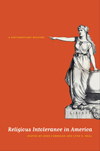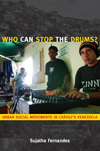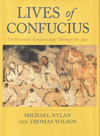On the shelf
The Magazine publishes a selection of general-interest books by alumni authors. For additional alumni books, see "In Their Own Words" at magazine.uchicago.edu/books.
Youth Gangs and Community Intervention: Research, Practice, and Evidence, edited by Robert J. Chaskin, AM'90, PhD'96, Columbia University Press, 2010. Most gang policies and programs deal with gangs by trying to suppress them. Other programs—which usually receive less attention and funding—rely on community organizations, schools, and social-service agencies to intervene and prevent gang activity. The essays in this book focus on the importance of community, while reorienting our understanding of gangs and anti-gang measures.
 Religious Intolerance in America: A Documentary History, edited by John Corrigan, PhD'82, and Lynn S. Neal, University of North Carolina Press, 2010. Despite the dominant narrative of religious freedom in the United States, hate and intolerance have persisted since colonial times. This survey of religious intolerance includes chapters on Catholicism, Mormonism, Judaism, Native American religions, and "new religious movements (NRMs)," more commonly referred to as cults, like Moonies or Wiccans.
Religious Intolerance in America: A Documentary History, edited by John Corrigan, PhD'82, and Lynn S. Neal, University of North Carolina Press, 2010. Despite the dominant narrative of religious freedom in the United States, hate and intolerance have persisted since colonial times. This survey of religious intolerance includes chapters on Catholicism, Mormonism, Judaism, Native American religions, and "new religious movements (NRMs)," more commonly referred to as cults, like Moonies or Wiccans.
 Who Can Stop the Drums? Urban Social Movements in Chávez's Venezuela, by Sujatha Fernandes, AM'00, PhD'03, Duke University Press, 2010. Fernandes traces the history of social activism in the barrios of Caracas, from the 1960s to the period after President Hugo Chavez was elected. Fernandes weaves barrio residents' life stories into her account of their struggles for social and economic justice, and examines the relationship between activists and the leftist president.
Who Can Stop the Drums? Urban Social Movements in Chávez's Venezuela, by Sujatha Fernandes, AM'00, PhD'03, Duke University Press, 2010. Fernandes traces the history of social activism in the barrios of Caracas, from the 1960s to the period after President Hugo Chavez was elected. Fernandes weaves barrio residents' life stories into her account of their struggles for social and economic justice, and examines the relationship between activists and the leftist president.
Serving Country and Community: Who Benefits from National Service?, by Peter Frumkin, PhD'97, and JoAnn Jastrzab, Harvard University Press, 2010. The U.S. government has created hundreds of voluntary service organizations, from the Civilian Conservation Corps to the Peace Corps to AmeriCorps. Billions of dollars have been spent, but the benefits of these programs—for both volunteers and those whom the programs are supposed to help—remain unclear. Frumkin and Jastrzab examine how national service influences the lives of young volunteers and discuss potential reforms to national-service programs.
The Women Who Reconstructed American Jewish Education, 1910-1965, edited by Carol K. Ingall, MAT'63, Brandeis University Press, 2010. Virtually all books on the history of Jewish education in the United States focus on male leadership. This volume brings to light the contributions of 11 women—including Mamie Gamoran and children's writer Sadie Rose Weilerstein—who have been previously overlooked.
The Everyday Advocate: How to Stand Up For Your Autistic Child, by Areva Martin, AB'84, Penguin Books (NAL Imprint), 2010. Martin, an attorney and the mother of a child with autism, is also the founder of the Special Needs Network, which focuses on helping low-income and minority parents assert their children's rights to services. In The Everyday Advocate, she offers practical, step-by-step advice to help parents get results for their child.
 Lives of Confucius: Civilization's Greatest Sage Through the Ages, by Thomas Wilson, AM'79, PhD'88, and Michael Nylan, Doubleday Religion, 2010. A single portrait of Confucius (Kongzi) is all but impossible to draw, Nylan and Wilson argue. His life and teachings—such as morality, justice, and propriety in social relationships—were as relevant in 100 BC as they are today. The book presents six portraits of Kongzi over time that have been compelling to successive generations, in an attempt to understand the most influential person in Chinese history.
Lives of Confucius: Civilization's Greatest Sage Through the Ages, by Thomas Wilson, AM'79, PhD'88, and Michael Nylan, Doubleday Religion, 2010. A single portrait of Confucius (Kongzi) is all but impossible to draw, Nylan and Wilson argue. His life and teachings—such as morality, justice, and propriety in social relationships—were as relevant in 100 BC as they are today. The book presents six portraits of Kongzi over time that have been compelling to successive generations, in an attempt to understand the most influential person in Chinese history.
The Boy on the Beach: Building Community Through Play, by Vivian Gussin Paley, PhB'47, University of Chicago Press, 2010. In her 13th book about young children, Paley—a preschool and kindergarten teacher for nearly 40 years, including time at the University of Chicago Laboratory Schools-seeks to understand the fantasy world of children and how they engage in what she calls "creative kindness." She explores what imaginary play reveals about childhood, development, education, and life itself.
Generation Earn: The Young Professional's Guide to Spending, Investing, and Giving Back, by Kimberly Palmer, MPP'04, Ten Speed Press, 2010. Palmer, the personal finance columnist for U.S. News & World Report, has written a guide for young professionals, known derisively as "generation debt." Palmer takes a holistic approach to finances and work-life balance, offering advice on career ambition, family, and giving back to the global community.
